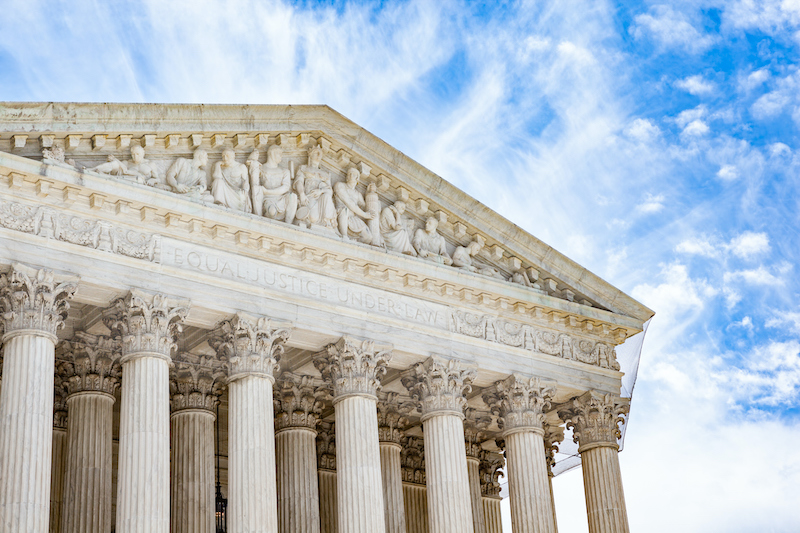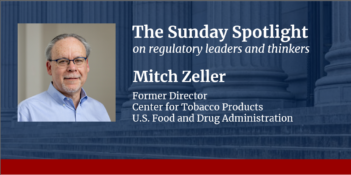
A recent case protecting LGBTQ rights may help the Supreme Court circumscribe the administrative state.
The surprising yet welcomed decision by the U.S. Supreme Court in Bostock v. Clayton County extended Title VII’s protections to LGBTQ workers. This decision leaves one to wonder about the potentially strategic motivations behind the result.
How did we get a 6-3 vote from arguably the most conservative Supreme Court of the last 100 years?
My guess is that Justice Neil Gorsuch’s battle against the Chevron doctrine—which obliges courts to defer to agency interpretations of statutes when there is some reasonable disagreement as to statutory meaning—played an important role.
Bostock v. Clayton County involved the interpretation of the nearly 60-year-old Civil Rights Act of 1964. The Court, in an opinion authored by Justice Gorsuch, interpreted the act as affording protections to LGBTQ workers from discrimination based on their sexual orientation and gender identity.
The decision in Bostock is popular across the ideological and partisan spectrum. It does undermine the Trump Administration’s recent efforts to roll back protections for the LGBTQ community ushered in by the Obama Administration. But for conservatives, the decision adheres to their preferred method of statutory interpretation—textualism. Proponents of textualism argue that courts should find statutory meaning primarily within the four corners of the statute without considering other factors surrounding its enactment. This means that, not only is Bostock a huge victory for LGBTQ equality, it also appears to be a stable victory.
The Bostock decision came out within a few days of the U.S. Department of Health and Human Services’s final rule that rolled back patient protections against discrimination on the basis of gender identity or sexual orientation. The rollback involved the Trump Administration’s reinterpretation of another landmark statute, the 10-year-old Patient Protection and Affordable Care Act, through which the Obama Administration instituted rules to protect LGBTQ patients from discrimination when seeking medical care. The Trump Administration’s change, made on the fourth anniversary of the Pulse Nightclub massacre in Orlando, was part of a larger effort to eliminate protections against discrimination of LGBTQ persons in the health care system as well as in housing.
In a week of highs and lows in the movement for LGBTQ equality, the high came from the Court while the lows came from the executive branch.
Progressives and reformers have long admired how administrative agencies are committed to expert decision-making that eschews political considerations. In fact, the attack on the independence of administrative agencies, and on the Chevron doctrine promoting deference to agency decision-making, has largely come from conservative observers of the administrative state.
The Trump Administration’s approach to agency decision-making, however, has undercut progressives’ admiration of federal agencies and has prompted suspicion of bureaucracy among liberal supporters of the administrative state. The sidelining of scientific experts, for example, is a leading explanation for the United States’ abysmal preparation for the COVID-19 pandemic and the country’s subsequently botched response. The Trump Administration’s handling of the crisis has also spurred distrust in agency expertise.
Furthermore, under the Trump Administration, administrative agencies have issued rules aimed at limiting eligibility for Supplemental Nutrition Assistance Program benefits and restricting access to Medicaid, even in states that have expanded the program. Other agency efforts include reducing procedural protections for immigrants and asylum seekers, as well as expanding the U.S. Department of Homeland Security’s detention and deportation authority in immigration enforcement. These actions have brought forth more challenges to the administrative state by progressives than in previous administrations and have begun to weaken progressive fealty to the administrative state. As a result, progressives today may be less likely than they once were to support the Chevron doctrine’s requirement of judicial deference to administrative decision-making.
Into this confluence of events stepped the Supreme Court in Bostock, with a new interpretation of a 60-year-old statute that updates its meaning, reach, and relevance—all while ignoring the Trump Administration’s opposition to this result. Against the backdrop of these dynamics, Justice Gorsuch’s strategy becomes clearer.
“The limits of the drafters’ imagination supply no reason to ignore the law’s demands,” Justice Gorsuch wrote. “When the express terms of a statute give us one answer and extratextual considerations suggest another, it’s no contest. Only the written word is the law, and all persons are entitled to its benefit.”
Said another way, a statute’s text should govern, rather than “extrajudicial considerations” such as its drafters’ intent or an agency’s interpretation. Justice Gorsuch has championed this conception of statutory interpretation since his days on the U.S. Court of Appeals for the Tenth Circuit. As a circuit judge, he argued that compelling judges to defer to agency interpretations of statutes constitutes an “abdication of the judicial duty” without basis in the U.S. Constitution or the Administrative Procedure Act.
One criticism of abandoning Chevron is that courts are not likely to be a trustworthy institution for progressives—especially when measured against the capacity of a Democratic presidential administration to bring about significant policy changes through decisive administrative action. Bostock, however, enhances the Court’s credibility as an institution capable of protecting the rights of vulnerable communities.
Justice Gorsuch’s reliance on textualism further augments the Court’s trustworthiness because textualism is generally trumpeted by conservatives. That textualism delivered a victory for liberals burnished textualism’s own credibility, alongside the Court’s. Bostock provides evidence that a more powerful Court should not be feared in a post-Chevron world.
Although the Trump Administration pushes progressives to question their faith in bureaucratic actors, Bostock suggests that the courts may not be as bad as feared. Decisions such as Bostock are important, even if only glacial, developments along the path to Chevron’s potential demise. Such a demise may or may not be a bad thing. But amid the celebration of the Bostock decision, it is important to consider the ways that Bostock’s arrival is a consequence of factors beyond the dispute over the rights of LGBTQ workers—and how the current of judicial thought that brought Bostock to fruition may lead to unintended destinations.
This essay is part of a series entitled The Supreme Court’s 2019-2020 Regulatory Term.




